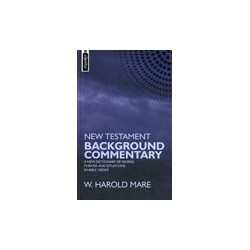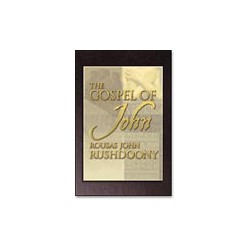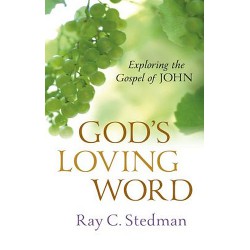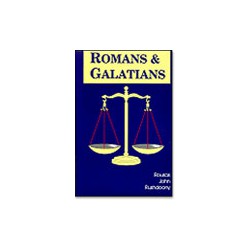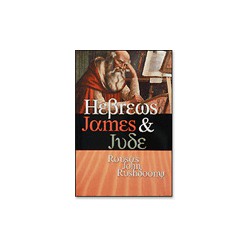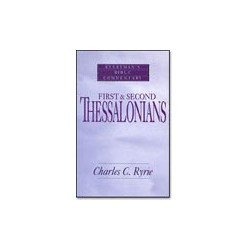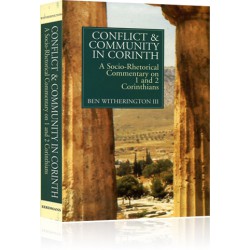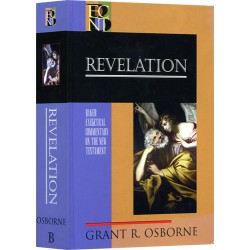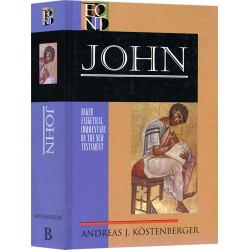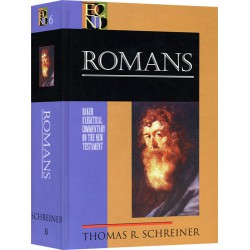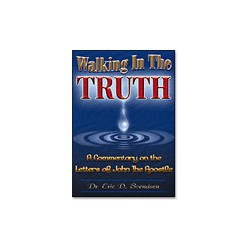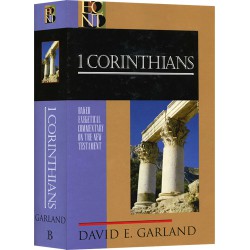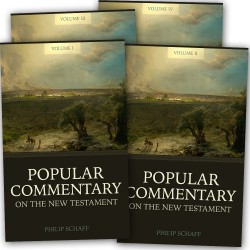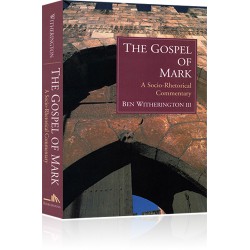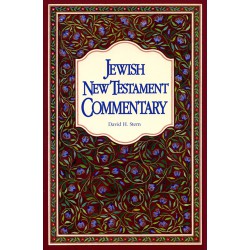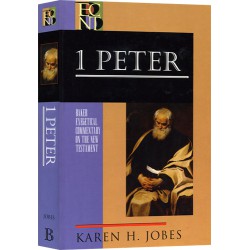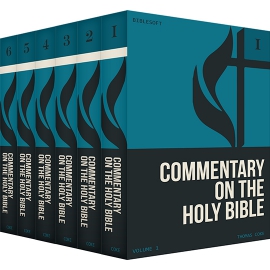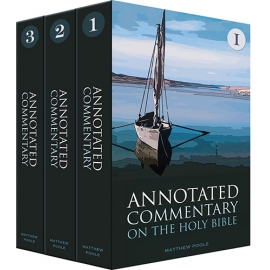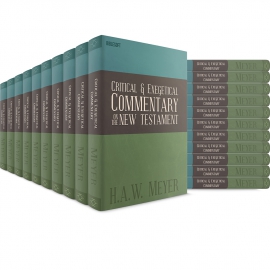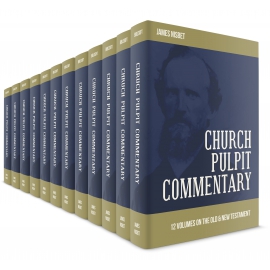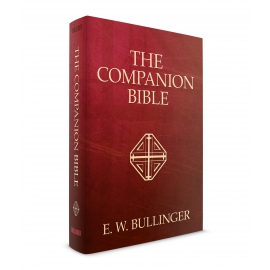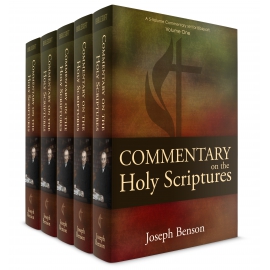No products
Product successfully added to your shopping cart
There are 0 items in your cart. There is 1 item in your cart.
 View larger
View larger
Classic Commentaries and Studies on the Book of Acts 10-volumes
The Classic Commentaries and Studies of the Book of Acts is a 10-volume collection of some of the greatest classical studies on the Acts of the Apostles in the nineteenth and early twentieth centuries.
BIBLESOFT DOES NOT SELL EBOOKS
Requires Program PCSB Version 5 or OneTouch (find out more)
- Write a review
Product Information
The Classic Commentaries and Studies of the Book of Acts is a 10-volume collection of some of the greatest classical studies on the Acts of the Apostles in the nineteenth and early twentieth centuries. This package includes thousands of pages of exegetical analysis, rhetorical context, contextual comparison, and interpretation all in one convenient bundle for your PC Study Bible library!
Included:
- The Acts of the Apostles Explained, by Joseph Addison Alexander (2 vols)
- The Acts of the Apostles, by G. Campbell Morgan
- A Commentary on the Acts of the Apostles, by J. W. McGarvey
- Lectures on the Acts of the Apostles, by John Dick
- Tracings from the Acts of the Apostles, by C. E. Stuart
- The Origin of Paul's Religion, by J. Gresham Machen
- St. Paul the Traveller and Roman Citizen, by W. M. Ramsay
- The Church in the Roman Empire before 170 A.D., by W. M. Ramsay
- Landmarks in the History of Early Christianity, by Kirsopp Lake
The Acts of the Apostles Explained, by Joseph Addison Alexander (2 vols)
Joseph Addison Alexander (1809-1860) went on to be the chair of oriental and biblical literature at Princeton in 1840. He became famed for his eloquence as a Presbyterian minister, showing a special interest in the study of Hebrew and other languages.
Known as a skilled linguist and exegete, Joseph Alexander's The Acts of the Apostles Explained, vol. 1 is an exegetical and expositional commentary on the text of Acts. Alexander proceeds through the text of Acts in a verse-by-verse manner, commenting on the language, history, and culture of the first century world. Volume one of Acts cover chapters 1-12.
In the second volume, Alexander proceeds through the text of Acts in a verse-by-verse manner, commenting on the language, history, and culture of the first century world. Volume two of Acts covers chapters 13-28.
The Acts of the Apostles, by G. Campbell Morgan
This work, according to the author, is that of Exposition based on Exegesis. It is, he states, really intended as a handbook to the reader who desires a true apprehension of the spiritual force and method of these first years of Christianity at work in human history. His own work on the story, he contends, has impressed him with the glorious regularity of the irregular in the work of the Church by the Holy Spirit. It is a powerful argument against the stereotyped in Christian organization and method; and consequently a plea for room for the operation of that Spirit, who like the wind - Bloweth where He listeth.
When dealing with Acts 4:32-37 he comments on the transitional nature of this segment, moving from Church infancy to early discipline in the church. In that process he deals with what would have been the various contemporary views of his day. So for an historical view on how Acts was interpreted, he gives a crucial slice of history.
Morgan evaluates and discards one view after another until he comes to what he sees as the satisfactory view. He often will cite something to the effect that a particular view has no evidence in scripture, and seems to be based on the bias of an author. I think these sort of arguments are ok, but I would prefer to see more specific responses to the verses his opponents use in their views.
A Commentary on the Acts of the Apostles, by J. W. McGarvey
Much the greater part of Acts may be resolved into a detailed history of cases of conversion, and of unsuccessful attempts at the conversion of sinners. If we extract from it all cases of this kind, with the facts and incidents preparatory to each and immediately consequent upon it, we will have exhausted almost the entire contents of the narrative. All other matters are merely incidental. The events of the first chapter were designed to prepare the apostles for the work of converting men; the gift of the Holy Spirit to them and to others was to qualify them for it; the admission of the Gentiles was an incident connected with the conversion of Cornelius, and others after him; the conference, in the fifteenth chapter, grew out of these conversions; and the long account of Paul's imprisonment in Jerusalem, Caesarea, and Rome, with his sea-voyage and shipwreck, constitute but the connected history of his preaching to the mob in Jerusalem, to the Sanhedrin, to Felix, to Festus, to Agrippa, and to the Jews and Gentiles in Rome. The episode in the twelfth chapter, concerning the persecutions by Herod, and his death, is designed to show that, even under such circumstances, "the word of God grew and multiplied." All the remainder of the history consists, unmistakably, in detailed accounts of conversions. Such being the work performed by the author, we may readily determine his design by inquiring, Why should any cases of conversion be put upon the record? Evidently, it was that men might know how conversions were effected, and in what they consisted. The cases which are recorded represent all the different grades of human society; all the different degrees of intellectual and religious culture; all the common occupations in life, and all the different countries and languages of the then known world. The design of this variety is to show the adaptation of the one gospel scheme to the conversion of all classes of men.
(Excerpted from the Introduction)McGarvey takes a narrative style so that it may be read through consecutively. This style is especially effective in making the history come alive as one reads the volume as a flowing story. He does not go verse by-verse disjointedly but integrates the text of Scripture into his flow of commentary. This is accomplished even as McGarvey stops from time to time to elaborate on issues and questions of his day (and which continue to be issues and questions in our day).
Lectures on the Acts of the Apostles, by John Dick
Dr. Robert Paul Martin John Dick (1764-1833) During the period of his ministry in Glasgow, attracted much notice by the delivery of a series of monthly Sabbath evening lectures on the Acts of the Apostles, which were afterwards published at intervals in two volumes; and, on a second edition being called for, were collected in one volume. These lectures, which were followed up by a series of discourses on the divine attributes, are reckoned models for the exposition of the Holy Scriptures.
Lectures on the Acts of the Apostles contains 29 lectures. The first 16 are designed to illustrate the principal events in the history of the Church, from the ascension of Christ to the meeting of the Council of Jerusalem. The last 13 center primarily on Paul’s labors and sufferings.
Tracings from the Acts of the Apostles, by C. E. Stuart
(Preface)
The rise and early progress of any remarkable movement must ever have an interest for the thoughtful and the inquiring. We see then some of the original labourers at work. We learn something of the springs of the movement. And, whilst noticing results, we can trace the causes which conduced to its success. If that is true of the many remarkable movements of which this world has been the theatre, what shall we say of the rise and early progress of Christianity? That must ever be to the Christian a study of intense interest.
A movement like it has never been known. It started into life with all the energy of a giant, just when to human thoughts the mission inaugurated by its Founder had received its death-blow. It spread without human patronage, and without the aid of human power. The great ones of the earth where it arose, and those who wielded the sword of government in different countries to which it spread, were none of them at first in its favour, but for the most part manifestly hostile. Yet it progressed. Threats, imprisonments, scourgings, tumults, legal prosecutions, and even the fear of martyrdom, were alike insufficient to cow its supporters, or to check their ardour in propagating their views. It was intensely aggressive. It admitted of no compromise with any creed in the world. It claimed to be the true faith; and, as such, alone offering that which was needful for everlasting salvation. It had confessedly truth in common with Judaism, yet was jealous of any Judaising teaching. It alone, it proclaimed, could furnish any inquirer with the full revelation vouchsafed by God, for the Church is the pillar and ground of the truth (1 Tim.3:15).
The Origin of Paul's Religion, by J. Gresham Machen
J. Gresham Machen is considered the last in the lineage of the Great Princeton Theologians, following in the steps of Archibald Alexander, Charles Hodge, A. A. Hodge, and B. B. Warfield. Machen taught at Princeton Seminary for almost 15 years and established himself as a well respected New Testament scholar. After a dispute that divided faculty members over an emerging modernist theology, Machen left Princeton and became one of the principal founders of Westminster Theological Seminary, where he taught until his death.
In The Origin of Paul's Religion, Machen turns his erudition against critics who disparage the relation of Paul's teachings to the original message of Jesus. In exploring the crucial questions surrounding this debate from both biblical and historical perspectives, Machen not only offers a convincing defense of the traditional view regarding Paul but also makes a lasting contribution to the study of the beginnings of the Christian faith.St. Paul the Traveller and Roman Citizen, by W. M. Ramsay
Sir William M. Ramsay (1851-1939) served as the first professor of classical art and archaeology at Oxford University. At the turn of the century, he engaged in extensive exploration of the antiquities of Turkey and contributed to the study of classical archaeology, geography, and New Testament studies. He is the author of many books, including historical commentaries on Galatians, First Corinthians, and the Pastoral Epistles.
Ramsay wrote this book to tell the story of Paul's life as it was documented in the Book of Acts. Before Ramsay begins his study of Paul's life, he discusses the date, composition, and authorship of Acts. "The first and the essential quality of the great historian is truth," says Ramsay.
The characterization of Paul found in Acts contains such individualized detail that the author could not have gathered this information by any means other than personal acquaintances and original sources. As such, Ramsay believes that the author of Acts has attained a superior mark of historical accuracy and literary trustworthiness.The Church in the Roman Empire before 170 A.D., by W. M. Ramsay
Sir William Mitchell Ramsay (1851-1939) was a Scottish archaeologist and New Testament scholar, as well as Professor of Classical Archaeology at Oxford University. He is now probably most remembered for his studies (in what is now Turkey and Asia Minor) of St. Paul's missionary journeys and of Christianity in the early Roman Empire, and for his endorsement of the historical accuracy of Luke and the Book of Acts.
This 1892 book (The "Mansfield College Lectures") was intended "to exemplify to younger students the method of applying archaeological, topographical, and numismatic evidence to the investigation of early Christian history." He states in the preface to the fourth edition that he "had no theory as to the composition or the date of (the Book of) Acts. He sought only for external and objective grounds on which to rest a rational criticism of the trustworthiness of the historical statements in the book ... he found that, out of the facts which led him to set a low value on the evidence of the book, several were founded on erroneous views.... In the attempt to attain and to justify an answer to the fundamental questions determining the historical authenticity of Acts as a picture of Roman society in the eastern provinces, the proposed single chapter grew into eight." He admits that "For a long time I failed to appreciate the accuracy of the narrative in Acts. It has cost me much time, thought, and labour to understand it."
Landmarks in the History of Early Christianity, by Kirsopp Lake
Kirsopp Lake (7 April 1872 – 10 November 1946) was a New Testament scholar and Winn Professor of Ecclesiastical History at Harvard Divinity School. He had an uncommon breadth of interests, publishing definitive monographs in New Testament textual criticism, Greek palaeography, theology, and archaeology.
Based on a series of lectures, this volume covers the beginning events of Christianity, using related cities such as Jerusalem and Antioch as chapter headings. Lake gives great detail on history of other religions as well, providing valuable context for understanding the origins of Christianity. He provides valuable insight on the traditions and social climate of the time.
Product Details


